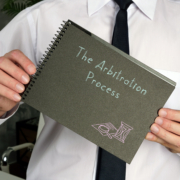Changes to Florida’s Rules of Civil Procedure: How ADR can help you transition smoothly
Florida’s legal landscape is always evolving, and 2025 has ushered in some important changes to the Florida Rules of Civil Procedure that will impact litigators, clients, and the courts alike. These changes reflect the ongoing efforts to streamline the civil justice process, ensure fairness, and promote efficiency. While some of the rules will apply only to cases filed after January 1, 2025, many of the rules apply to older cases regardless of when it was filed. For litigators that are already handling case volumes that are challenging, these changes may bring about additional stress and strain at a time when that is the last thing that they need.
Fortunately, Florida also has a long history of developing and promoting Alternative Dispute Resolution in its legal framework. From encouraging mediation in Family Law to promoting the use of non-binding arbitration in circuit civil matters, ADR has provided a much-needed path for resolving matters that would have otherwise clogged the court system and prevented other cases from reaching a resolution through trial.
Now, more than ever, ADR is poised to play a critical role in managing case volumes for lawyers and Courts alike in Florida. With mandatory case management orders that allow little wiggle room for continuances or extensions, initial legal strategies now need to include a robust review of the potential value of Mediation and Arbitration in that particular case. Although conflict can be challenging, reaching a resolution while advocating for their clients is what lawyers do every day, and ADR is poised to help them do just that. While 2025 will undoubtedly bring challenges to many lawyers in Florida as they adjust to this new framework, with the tools of ADR at their disposal, there is nothing that they can’t handle.









